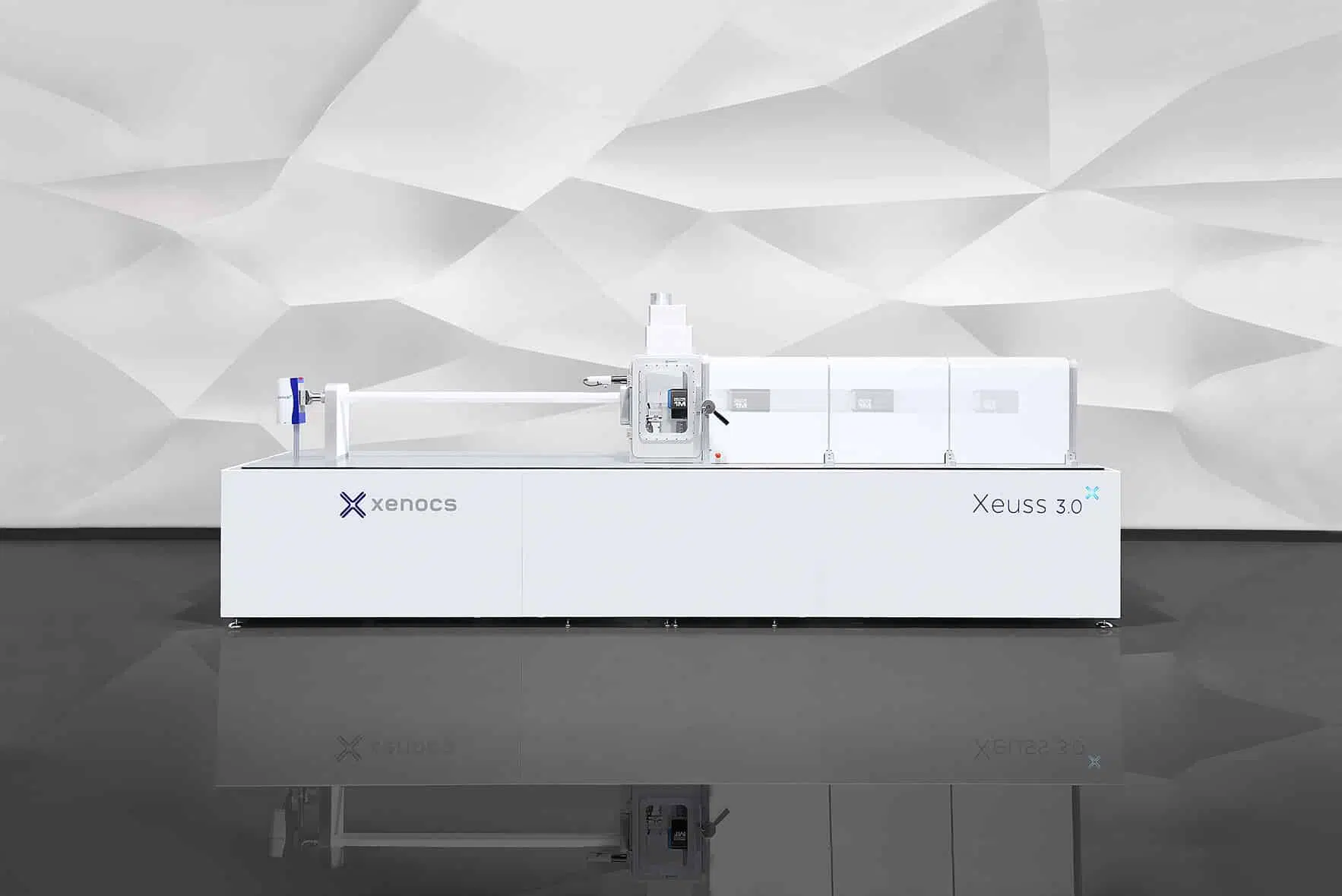The Journal of Physical Chemistry B, 2018, vol 122, 9, pp. 2655-2668
DOI:10.1021/acs.jpcb.7b09647
Abstract
The thermoresponsive behavior of two diblock copolymers PS-b-PNIPAM and PS-b-PMDEGA, which both comprise a hydrophobic polystyrene (PS) block but different thermoresponsive blocks, also differing in length, poly(N-isopropylacrylamide) (PNIPAM) and poly(methoxy diethylene glycol acrylate) (PMDEGA), respectively, was comparatively investigated in a wide temperature range. Concentrated aqueous solutions containing 25 wt % polymer were studied by small-angle X-ray scattering (SAXS), differential scanning calorimetry (DSC), and broadband dielectric spectroscopy (BDS). DSC measurements show that, during the demixing phase transition, the hydration number per oligo(ethylene glycol) side chain in the PS-b-PMDEGA solution decreases rather gradually, even up to 20 °C above the onset of the transition, i.e., the cloud point (CP). In contrast, the PS-b-PNIPAM solution exhibits an abrupt, stepwise dehydration behavior at its CP, indicated by the sharp, narrow endothermic peak. BDS measurements suggest that the organization of the expelled water during the phase transition and the subsequent evolution of the micellar aggregates are different for the two copolymers. In the PS-b-PMDEGA solution, the long-range charge transport process changes significantly at its CP and strong interfacial polarization processes appear, probably due to charge accumulation at the interfaces between the micellar aggregates and the aqueous medium. On the contrary, in the PS-b-PNIPAM solution, the phase transition has only a marginal effect on the long-range conduction process and is accompanied by a reduction in the high-frequency (1 MHz) dielectric permittivity, ε′. The latter effect is attributed to the reduced polarization strength of local chain modes due to an enhancement of intra- and interchain hydrogen bonds (HBs) in the polymer-rich phase during the water detaching process. Surprisingly, our BDS measurements indicate that prior to both the demixing and remixing processes the local chain mobility increases temporally. Our dielectric studies suggest that for PS-b-PNIPAM the water detaching process initiates a few degrees below CP and that the local chain mobility and intra- and/or interchain HBs of the PNIPAM blocks may control its thermoresponsive behavior. Dielectric “jump” experiments show that the kinetics of micellar aggregation in the PS-b-PMDEGA solution is slower than that in the PS-b-PNIPAM solution and is independent of the target temperature within the two-phase region. From the experimental point of view, it is shown that the dielectric susceptibility, especially, the dielectric permittivity, ε′, is a well-suited probe for monitoring both the reversible changes in the molecular dipolar bond polarizability and the long-range interfacial polarization at the phase transition.


































